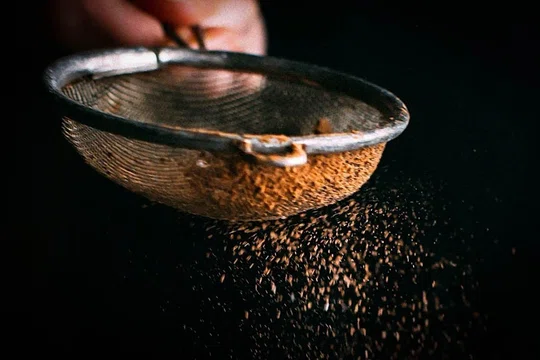In two recent oral orders, Chief Judge Stark provided some insight into how he is scheduling bench trials in 2020. In both cases, Judge Stark indicated a willingness to hold "remote" bench trials. While the question of whether and how jury trials will proceed in 2020 is still very much open, it appears that Judge Stark is continuing to move forward with bench trials, and investigating practical solutions to problems posed by Covid-related restrictions.
Judge Stark today dismissed an ANDA claim after the defendant converted their ANDA in such a way that it simply did not infringe, and plaintiff was left with no claim and no remedy.
What Is an ANDA? (The Short Short Version)
ANDA cases make up a fair portion of the Court's docket. If you're not already familiar, ANDA cases are brought by patent holders after a drug manufacturer files an ANDA seeking approval to manufacture a generic version of a drug.
As part of the ANDA, if there are unexpired patents listed with the FDA as covering the drug, the manufacturer may certify either that the patents are invalid, unenforceable, or won't be infringed (paragraph IV), or …
While we're talking about reply briefs—Judge Connolly this month affirmed Judge Burke's conclusion that a defendant had "abandoned" arguments that it set forth in its opening brief, because the defendant failed to further address those arguments in a reply after receiving pushback in the answering brief.
Here is what Judge Burke said:
In its opening brief, Defendants appeared to challenge these claims on two other grounds . . . . However, after Plaintiff pushed back on these issues in its answering brief, Defendants did not further address the issues in their reply brief. . . . Thus, Defendants have abandoned these arguments and the Court will not further address them herein.
Judge Connolly disagreed that such arguments are …
As Andrew recently explained, the District of Delaware has a longstanding rule against "sandbagging," or saving arguments for a reply brief that should have been in a full and fair opening brief. But not every new argument is sandbagging.
In f'real Foods, LLC v. Hamilton Beach Brands, Inc., C.A. No. 16-41-CFC (D. Del. June 24, 2020), the defendants opposed a permanent injunction on sale of their commercial blenders by pointing out that the plaintiffs presented no evidence that their blender could meet the technical requirements demanded by one of defendants' customers (Dairy Queen).
In reply, the plaintiffs submitted new evidence and argued for the first time that their blenders could be modified to meet Dairy Queen's …
The judges' form scheduling orders in D. Del. require deadlines for motions to amend, tracking FRCP 16(b)(3)(a), which says scheduling orders must limit the time to amend pleadings.
In an oral order on Friday, Judge Burke granted a motion to amend an answer that was filed on the day of the deadline set in the scheduling order.
He described how difficult it would be for a party to argue that a motion to amend was untimely when it was filed before the agreed-upon deadline:
It would be the unusual case where a Court had previously determined (at the parties' request) that amendment could be allowed by a certain date without causing harm to the case schedule, and yet …
Judge Burke's exacting standards regarding the sufficiency of pleadings in a patent case were on display in a recent R&R, in which he recommended dismissing indirect and willful infringement claims. This ruling demonstrates that although plaintiffs are not required to prove their case as the pleading stage, they are well advised to bolster their complaint with allegations that link the elements of their claims to specific facts.
The key passages of the 24-page R&R in Midwest Energy Emissions Corp. v. Vistra Energy Corp., C.A. No. 19-1334-RGA-CJB concern what makes an infringement claim "plausible" under the Twombly/Iqbal standard.

Judge Andrews today granted a rare Rule 12(c) motion in an ANDA action, entering judgment against the plaintiffs on their inducement claim based on the pleadings alone.
The method claim at issue requires administering a drug "from about 3 hours to about 1 hour" before a colonoscopy.
The accused product's label includes instructions to administer the drug "start[ing] approximately 5 hours prior to [a] colonoscopy," and then to "drink at least three 8-ounce cups . . . of clear liquids . . . at least 2 hours before" the procedure.
Judge Andrews held that those allegations—even if true—cannot show inducement of infringement, even if in practice some amount of infringement would occur. …

I just came across the above quote, which is from a discovery dispute back in April where Judge Burke struck a very-late-disclosed witness.
It's an interesting—and accurate—description of the Pennypack factors. Most DE patent litigators are familiar with Pennypack, which set forth a loose set of factors for deciding whether to apply the "extreme" sanction of excluding "critical" evidence. Meyers v. Pennypack Woods Home Ownership Ass’n, 559 F.2d 894, 905 (3d Cir. 1977).
Even though Pennypack issued way back in 1977, modified versions of its list of factors are still applied today. When they come up, they most often favor the party producing …
Claims for enhanced damages based solely on post-filing conduct have always been a tough sell, and it's only been getting worse...
A recent decision from Judge Stark highlights an often-overlooked aspect of motions to compel: explaining why the documents are relevant in the first place.